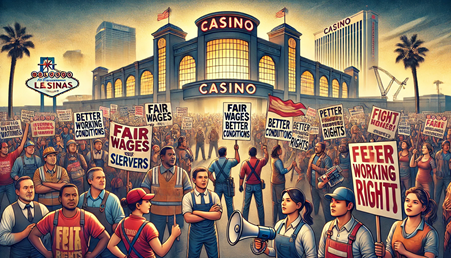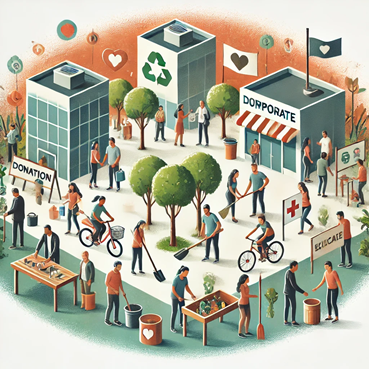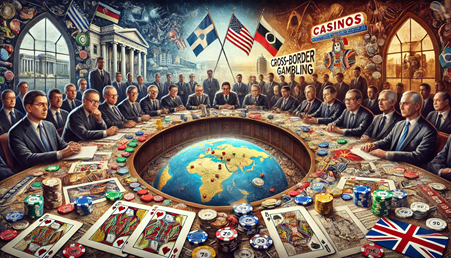What challenges are democracies facing in the 21st century

What challenges are democracies facing in the 21st century
by Sebastian 04:06pm Jan 02, 2025
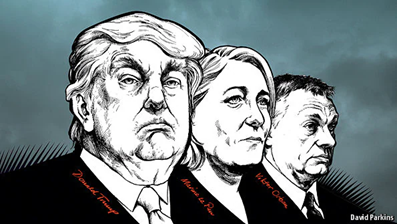
What challenges are democracies facing in the 21st century?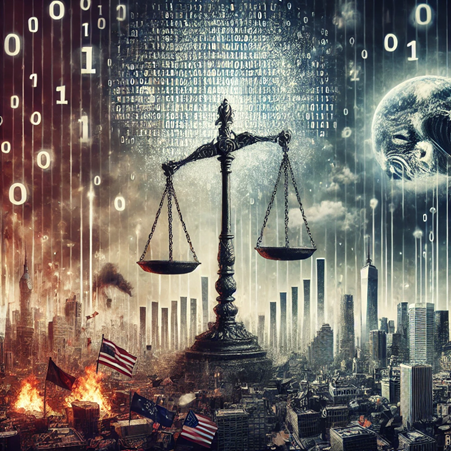
What challenges are democracies facing in the 21st century?
Democracies in the 21st century face a range of significant challenges that threaten their stability, effectiveness, and overall health. These challenges are shaped by both internal and external factors, and they vary in scope and complexity across different nations. Here are some of the key challenges that democracies are grappling with today:
1. Erosion of Trust in Institutions and Political Polarization
Declining Trust in Institutions: Democracies are experiencing a decline in public trust in key institutions, such as governments, political parties, media, and the judiciary. This erosion of trust can lead to political disengagement, disillusionment, and apathy among citizens. For example, in many Western democracies, trust in government has decreased significantly, as people feel that institutions are no longer serving their needs or are corrupt.
Political Polarization: In many democracies, political polarization has deepened, with increasing ideological divides between different political groups. This has resulted in less cooperation across the political spectrum, gridlock in decision-making, and heightened social tensions. In countries like the United States, the United Kingdom, and Brazil, polarization has led to divisive elections, increasing societal conflicts, and the difficulty of finding common ground on key issues.
2. Populism and the Rise of Authoritarianism
Populist Movements:In recent years, populist leaders have gained traction in many democracies, often using rhetoric that appeals to public discontent, dissatisfaction with elites, and a desire to return to a simpler, more traditional political order. Populism often includes attacks on the media, the judiciary, and democratic institutions. Populist leaders may undermine democratic norms, challenge checks and balances, and centralize power. Countries like Hungary, Poland, and Turkey have seen populist leaders erode democratic standards.
Authoritarian Tendencies: In some democracies, there has been a drift toward authoritarianism, where elected leaders use their powers to weaken democratic institutions, curtail civil liberties, and stifle opposition. This trend is visible in countries where leaders consolidate power, manipulate electoral processes, and suppress dissent, as seen in countries like Russia, Venezuela, and even in some European democracies.
3. Misinformation and Disinformation
Spread of Fake News and Manipulation: The rise of social media has made it easier for misinformation and disinformation to spread rapidly. This undermines informed decision-making, polarizes political discourse, and can even influence elections. Fake news and conspiracy theories are often used to sow division and distrust in democratic processes, such as through Russian interference in the 2016 U.S. presidential election or the spread of false information during the Brexit referendum.
Social Media Algorithms: Social media platforms often prioritize sensational, emotionally charged content,which can contribute to the spread of misinformation. Echo chambers and filter bubbles, where people are exposed only to content that aligns with their views, exacerbate polarization and the erosion of public trust in reliable sources of information.
4. Threats to Electoral Integrity
Voter Suppression and Disenfranchisement: In some democracies, there have been attempts to suppress or disenfranchise certain groups of voters, particularly marginalized communities. This may include voter ID laws, gerrymandering, or restrictions on voting access, which can undermine the fairness of elections. In the U.S., debates over voter ID laws, the closure of polling stations, and the manipulation of voting districts have raised concerns about the integrity of elections.
Foreign Interference in Elections: Democracies are also vulnerable to foreign interference in their electoral processes, as seen in the interference by Russia in the U.S. 2016 presidential election and other foreign actors attempting to influence elections through cyber-attacks, social media manipulation, or even financial support for political candidates. This external threat undermines the credibility of democratic processes.
5. Economic Inequality and Social Unrest
Widening Economic Inequality: Economic inequality is a growing challenge in many democracies, as the wealth gap between the rich and the poor continues to widen. When economic growth disproportionately benefits the wealthy, it leads to social unrest, frustration, and a sense of alienation among disadvantaged groups. This inequality can weaken social cohesion, foster resentment, and lead to calls for radical political change.
Globalization and Job Displacement: While globalization has brought economic growth, it has also led to job displacement, especially in industries that have moved overseas. This has created economic dislocation in many regions, particularly in working-class communities, which has fueled populist sentiments and discontent with the political establishment.
Cost of Living and Economic Uncertainty: In many democracies, high living costs, especially for housing, education, and healthcare, contribute to economic insecurity. A lack of economic opportunity and social mobility can make people feel disconnected from the political system, leading to disillusionment and increasing support for extremist political movements.
6. Climate Change and Environmental Challenges
Climate Crisis: Climate change poses an existential threat to the planet, and it requires a long-term, coordinated response across borders. However, democratic governments often face challenges in implementing bold climate policies due to short-term electoral cycles, vested interests, and resistance from powerful industries. Climate change can also exacerbate social inequalities and lead to political instability, as populations are displaced by rising sea levels, droughts, and natural disasters.
Environmental Populism: Populist movements may challenge climate action by prioritizing short-term economic concerns over long-term sustainability. For instance, populist leaders may advocate for deregulation of industries that harm the environment, undermining efforts to address climate change and natural resource depletion.
7. Technological Disruption and Privacy Concerns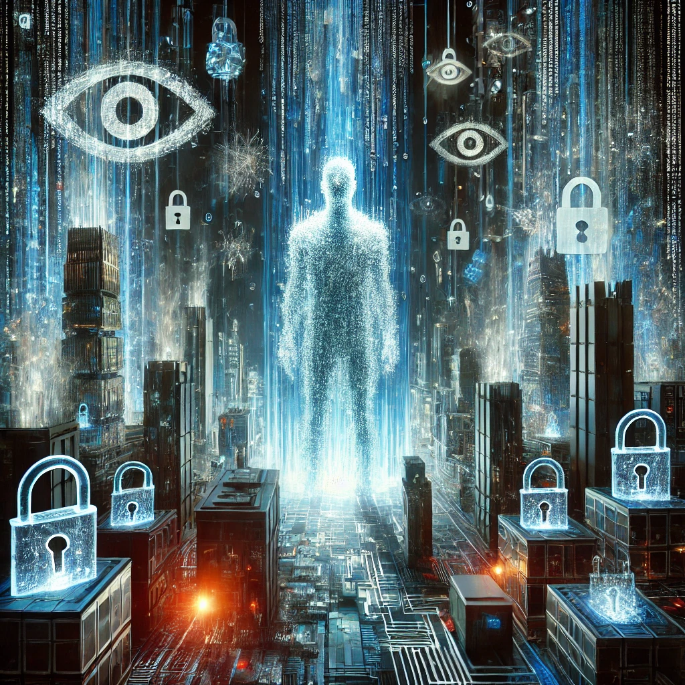
Impact of Artificial Intelligence and Automation: Rapid technological advancements, including AI, automation, and robotics, have the potential to disrupt economies and labor markets. While these technologies could drive economic growth, they also pose risks of job displacement, increased inequality, and changes to the nature of work that may not be fully understood or addressed by policymakers. In democracies, these issues often create new political and social divides, particularly when the benefits of technology are not equitably distributed.
Surveillance and Privacy: The increasing use of digital surveillance technologies, including facial recognition and data collection by both governments and private companies, raises concerns about privacy, civil liberties, and the erosion of personal freedoms. The balance between security and individual rights is a growing challenge in democracies, as citizens face new risks of government overreach and corporate exploitation of personal data.
8. Declining Civic Engagement and Political Participation
Political Apathy and Low Voter Turnout: In many democracies, voter turnout is declining, particularly among younger generations. This may be due to political disillusionment, a sense of disenfranchisement, or the perception that individual votes do not matter. As a result, large segments of the population may feel disconnected from the political process, leading to lower engagement and decreased participation in democratic institutions.
Decline of Civic Education: The decline of civic education in schools and the reduction of public engagement with democratic norms can lead to a less informed electorate that is less likely to engage in critical political discourse. This can contribute to the rise of populist movements and extremism.
9. Nationalism and Isolationism
Rise of Nationalism:In many democracies, nationalist movements have gained traction,emphasizing national sovereignty and the rejection of international cooperation. These movements often seek to limit immigration, withdraw from international agreements, and challenge the principles of globalization. While nationalism can provide a sense of unity and national pride, it can also undermine international collaboration and destabilize multilateral institutions that support democracy.
Isolationism:Some democracies are retreating from global leadership roles and prioritizing national interests over global cooperation. This isolationist trend weakens international institutions, such as the United Nations and the European Union, and undermines collective efforts to address global challenges such as climate change, human rights, and security threats.
10. Global Geopolitical Shifts
Rising Authoritarianism: The rise of authoritarian regimes, particularly in countries like China, Russia, and some parts of the Middle East, poses a challenge to the liberal democratic order. As authoritarian states assert themselves on the world stage, they may undermine international norms and institutions that support democracy, human rights, and the rule of law. Democracies may also face pressure to confront these authoritarian powers diplomatically, economically, or militarily.
Geopolitical Instability: Geopolitical tensions, such as trade wars,territorial disputes, and military conflicts, can strain the internal stability of democracies. Political leaders may be tempted to adopt nationalist or populist rhetoric to rally domestic support, which can undermine democratic principles and international cooperation.
Conclusion
Democracies in the 21st century face a wide array of challenges that threaten their functioning and future viability. These include political polarization, economic inequality, the erosion of trust in institutions, the rise of populism and authoritarianism, misinformation, and global geopolitical shifts. Addressing these challenges requires resilient, adaptive democracies that can engage citizens, protect civil liberties, and safeguard democratic institutions. In an increasingly complex and interconnected world, democracies must find ways to strengthen their foundations while responding to emerging threats and ensuring that they remain responsive to the needs of their citizens.


